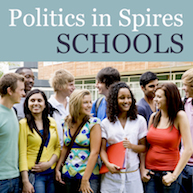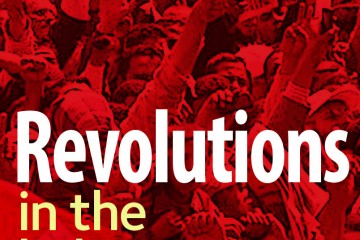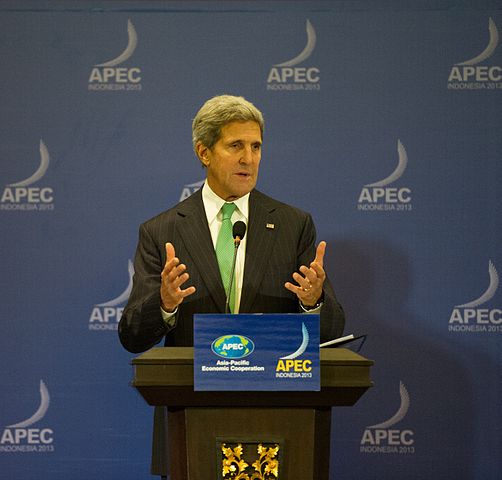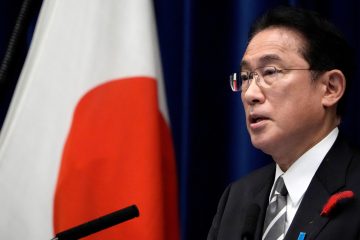
Rethinking Europe in a Non-European World
The international landscape is changing. The emergence of new and powerful global players such as China, India and Brazil lessens Europe’s traditionally strong position on the international stage. One of the questions facing European policy-makers today is thus how Europe can exert influence in an increasingly globalised world despite its comparative decline in military strength and economic capacity vis-a-vis the new emerging powers. In the mid 200s at the University of Oxford, a group of researchers, led by Kalypso Nicolaidis, founded the research project RENEW – Rethinking Europe in a Non-European world – in order to address precisely this question as well as to reflect more widely on Europe’s role in a changing world order.

What would change if the voting age was lowered to 16?
This autumn, in his speech to the Labour party conference, Ed Miliband called for the voting age to be lowered to 16. This follows legislation by the SNP government in Scotland to allow 16 and 17 year olds to vote in the forthcoming referendum on Scottish independence. Explanations of the merits of extending the franchise to younger people normally begin with statements such as ‘if someone’s old enough to X…’ with X replaced by ‘marry’, ‘go to war’, ‘pay taxes’ and so on. We might note that these are, at best, weak arguments since 16 year olds can only marry and join the army with their parents’ permission and even 5 year olds pay tax in the form of VAT when their pocket money is translated into sweets.[1] Either way, it seems likely that the SNP’s decision was not really based on the merits of the case and was simply a narrow electoral consideration. Young people are generally in favour of Scottish independence, so allowing them to vote will increase the proportion of people voting yes. It seems reasonable to think that this is also the major reason why the Labour party is now interested in lowering the voting age in general elections to 16. Young people are seen as more likely to vote Labour, so allowing them to vote will boost Labour’s prospects in future elections. What is never quite clear is whether these are sensible conclusions. Would the entrance of 16 and 17 year olds into the electorate make much difference?

Yesterday’s Tomorrows – What Happened to the Future of Government?
Christopher Hood and Ruth Dixon explain the results of their recent project aiming to assess the effects of successive efforts to reform the executive government (the ‘state machine’) of the UK over the past thirty years. This project explores how those reforms played out, and how far they delivered on what had been claimed and expected of them. How much ‘leaner and meaner’ was the state machine after a generation of such changes? Such an exploration is not only an interesting study in its own right; it is also significant for assessing the prospects for the future of government in the coming decades, for example in assessing how government changed in the periods of cutbacks in the 1980s and early 1990s in the context of what is likely to be a period of prolonged fiscal restraint in the 2010s.

Revolutions in the Balance
Ignited in Tunisia in late 2010, the Arab Uprisings quickly swept through a wider region better known for sectarian, ethnic and religious cleavages. In Tahrir Square and Benghazi, citizens – particularly millions of youth – rallied around common demands such as bread, freedom and social justice. Almost three years later, however, the revolutions that began with such high hopes are increasingly defined by ongoing political chaos. Revolution has led to counter-revolution and military coups. For scholars interested in social movements, particularly religious-based ones, these ongoing events are historic. The evolving nature of the social movements has injected a great deal of uncertainty in the region, and especially the foreign ministries of key players like Iran, Turkey and Israel. While the …

Michael Freeden on Political Ideologies
Why is the study of ideologies so important for understanding—and navigating through—the social world of which we are part? And why do we have to cast aside old approaches that regard ideologies as abstract, superimposed by manipulative and power-thirsty individuals and groups, and opposed to the pragmatism of political life? The simple answer is that we always live in a world of ideologies and every one of us has one, whether we are aware of it or not, and whether it is clearly expressed or just a vaguer set of beliefs and perceptions.
Although every one of us is unique as a human being, we also display patterns of behaviour we share in common, even if they differ on particulars. Those include patterns of thinking about our society and about other societies. Ideologies are one such pattern, concerning the political arrangements and processes of a political community. Sometimes these are on a grand scale: visions of a rich and harmonious future, or plans for control and domination. At other times they are more modest and specific: designing a fairer constitution, reducing poverty, protecting religious beliefs, or having concerns about immigration. Any society will host a number of ideologies, though some may be more prominent and some may be repressed by the groups that are in power. In democratic systems, certainly, ideologies will compete over the control of public policy. Because that competition is over ideas, beliefs and values it is above all conducted through words, oral or written—in Parliamentary debates, newspaper articles, blogs, pamphlets, manifestos, TV programmes and books. Consequently, whoever controls the public language of a society is in a very strong position to implement its policies.

Toward a citizens’ inheritance?
The question of how to justly distribute assets across society is one which has consumed political thinkers for generations. In 1797 the great democratic thinker and politician Tom Paine argued that every citizen reaching 21 years of age should receive the capital sum of £15. This was to be financed from a tax on the wealth people left at death. Two hundred or so years after Paine wrote, scholars are still addressing this question. In 1999 Bruce Ackerman and Anne Alstott, professors at Yale University, argued that every US citizen should receive an $80,000 grant in early adulthood, financed from a tax on wealth and inheritance. These proposals are fundamentally for a citizens’ inheritance: tax a portion of the wealth that is passed between the generations and use this to finance a capital grant in early adulthood for every citizen. Dr Stuart White examines the question of whether citizens’ inheritance something we should have if we want a just society.

Politics In Spires Schools
The divide between subjects taught in the school classroom and university-level research is often exaggerated. Someone between 16-18 would be familiar with many themes addressed by Oxford’s Department of Politics and International Relations (DPIR). Still, some content, and especially research methods, would be completely new. Articles published in this series are part of a pilot scheme to bridge this divide. Recently, postgraduates from the DPIR visited schools to discuss its research programme with 16-18 year-old students taking courses in government and politics. The conversation pointed to many similarities. All A-level Politics courses aim to develop critical awareness of the nature of politics and increase understanding of the structures of authority and power. This is also true of University research. These …

The US Rebalance Off-Balance: Missing the party in Asia
In April 2013, Joseph Yun, then the US Acting Assistant Secretary for East Asia and the Pacific, addressed a Senate Foreign Affairs Subcommittee on the US policy of “rebalance” towards Asia. He argued that this rebalancing, originally introduced by the Obama administration in 2011 as the “pivot”, reflected the “profound recognition that the future prosperity and security of our nation will be defined by events and developments in the region”. Yun went on to explain how the US commitment towards the Asia-Pacific can best be demonstrated, noting that while security and defence-related cooperation is important, US “allies and partners… also tell us that, as we deepen our military engagement, we should continue also to emphasize the diplomatic, development, economic, and people-to-people engagement in order to demonstrate our longer-term commitment to our rebalance strategy.” (Yun Testimony, Washington DC, 25 April 2013).
President Obama’s intended visit to the region in early October 2013 was supposed to be a key plank in demonstrating that commitment. Obama was to have attended the East Asia Summit in Brunei, and the Asia-Pacific Economic Conference held in host-country Indonesia – a country that because of its influence in ASEAN, the G20 and the Organization of Islamic Conference, deserves sustained attention. In Kuala Lumpur, Obama would have attended the Global Entrepreneurship Summit. More importantly still, it would have been the first time that a sitting US president has visited Malaysia since 1966. Obama was also due to be in the Philippines in order both to demonstrate that the US remains a loyal ally when there is a perceived increased threat from China, but probably also to give the message that Manila needs to stay in step with its ASEAN neighbours on the South China Sea dispute and not surprise them with diplomatic positions that leave them nonplussed and that would likely exacerbate the issue.









